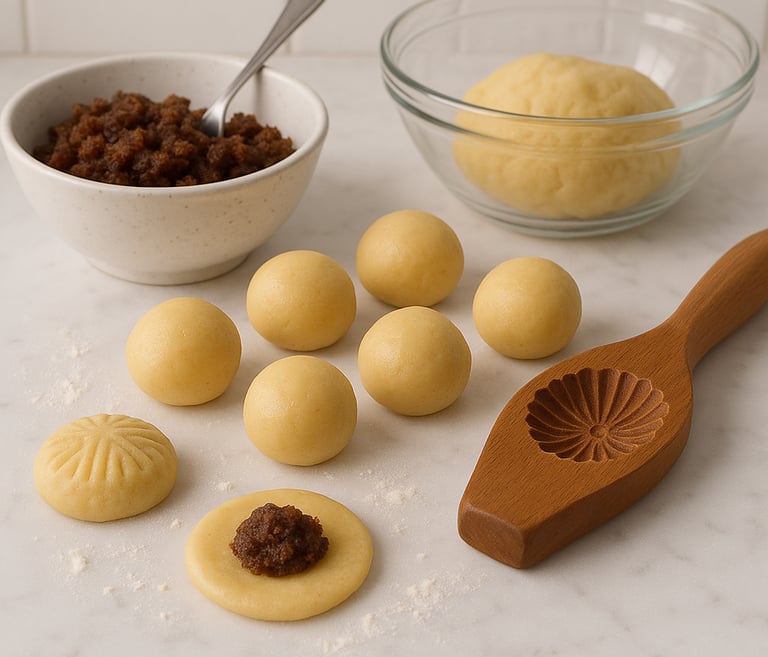Honey from the Rock: When God's Provision Comes Disguised
A story of hope from Jordan's refugee camps. Stranded in a desert town after fleeing conflict, Leila prays for help. She finds God’s answer in the sweetness of an unexpected calling.
DAILY REFLECTIONS
Wandering Armenian
8/12/20253 min read


Honey from the Rock: When God's Provision Comes Disguised
The Promise
"I would satisfy you with honey from the rock." — Psalm 81:16
Leila's Story
The morning call to prayer echoed across Mafraq as Leila counted her remaining dinars for the third time. Twelve. Barely enough bread until the end of the week.
Two years ago, she had arrived at this Jordanian border town with her two daughters, fleeing the bombs that had shattered their Damascus neighbourhood. Back then, she still wore the confident smile of a nutrition specialist who had spent years teaching mothers how to nourish their children in the most desperate circumstances. Now, staring at her own empty cupboards, those lessons felt like cruel irony.
Her work visa had expired six months ago. The NGO funding that supported her position had been redirected to "more urgent priorities." At forty-three, with greying temples and calloused hands, she felt invisible—just another statistic in a camp full of forgotten dreams.
That evening, as her daughters slept on thin mattresses, Leila stepped outside their prefab shelter. The desert stars seemed impossibly bright, indifferent to her despair. She opened her worn Arabic Bible to a passage that had once comforted her grandmother during Syria's drought years:
"I would satisfy you with honey from the rock."
"Honey from the rock?" she whispered, her voice breaking. "All I see is dust, God. Where's the sweetness in this?"
But as she closed the book, her grandmother's weathered voice echoed in her memory: "Habibti, when you have flour, water, and willing hands, you can still create something beautiful."
The next morning, Leila made a decision that surprised even herself. She took her last bag of semolina flour and began mixing the dough. Her fingers, muscle-memory intact from childhood Eids, shaped delicate ma'amoul cookies filled with dates and perfumed with orange blossom water. The familiar motions soothed her anxiety like a prayer.
When the sweet aroma filled their small space, her youngest daughter, Noor, pressed her face against the window. "Mama, it smells like home."
Leila's eyes filled. She had created more than pastries—she had summoned hope.
Without thinking, she wrapped half the batch and knocked on her neighbor Um Ahmad's door. The elderly Palestinian woman's face lit up as she bit into the tender cookie. "Ya Allah, this takes me back to Jerusalem," she said, tears streaming. "My daughter works at the aid office in town. She must try these."
Three days later, that daughter appeared at Leila's door with an unexpected proposal: Would she consider teaching other women to bake? There was a small kitchen space at the community centre, and local shops were asking for authentic Middle Eastern sweets.
Within a month, what began as an act of desperation had blossomed into something extraordinary. Six refugee mothers gathered each morning, their shelter filling with laughter, Arabic songs, and the intoxicating scent of cardamom and honey. They weren't just baking—they were rebuilding pieces of themselves.
The cooperative, which they named "Barakah" (blessing), soon supplied three local cafes. Each woman earned enough to buy fresh vegetables, school supplies, even small luxuries like soap that smelled like jasmine.
But the real transformation was deeper. Leila watched Um Fatima, who hadn't smiled since losing her son in Aleppo, teaching a young mother how to fold dough. She saw Widad, once too proud to accept charity, now proudly displaying her rosette-shaped ghraybeh cookies to customers.
One evening, as golden sunset light filtered through flour-dusted air, Leila understood. God hadn't ignored her prayers—He had answered them in a language she hadn't expected. The honey from the rock wasn't a miraculous windfall or a restored visa. It was something sweeter: dignity restored through her own hands, community born from shared struggle, and purpose discovered in the very skills she thought the world no longer valued.
Her grandmother had been right. With flour, water, and willing hands—and faith enough to begin again—you could indeed create something beautiful.
The Heart of the Story
Sometimes God's provision doesn't look like rescue from our circumstances—it looks like discovering Him within them. Leila's story reminds us that our deepest gifts often emerge not despite our difficulties, but because of them. When we offer our small acts of love and creativity to Him, He transforms them into something far sweeter than we could have imagined.
The honey was always there, waiting in the rock of her experience, her heritage, her grandmother's wisdom. She just needed to believe it was worth extracting.
What skills, memories, or acts of love is God waiting to transform in your own life?

